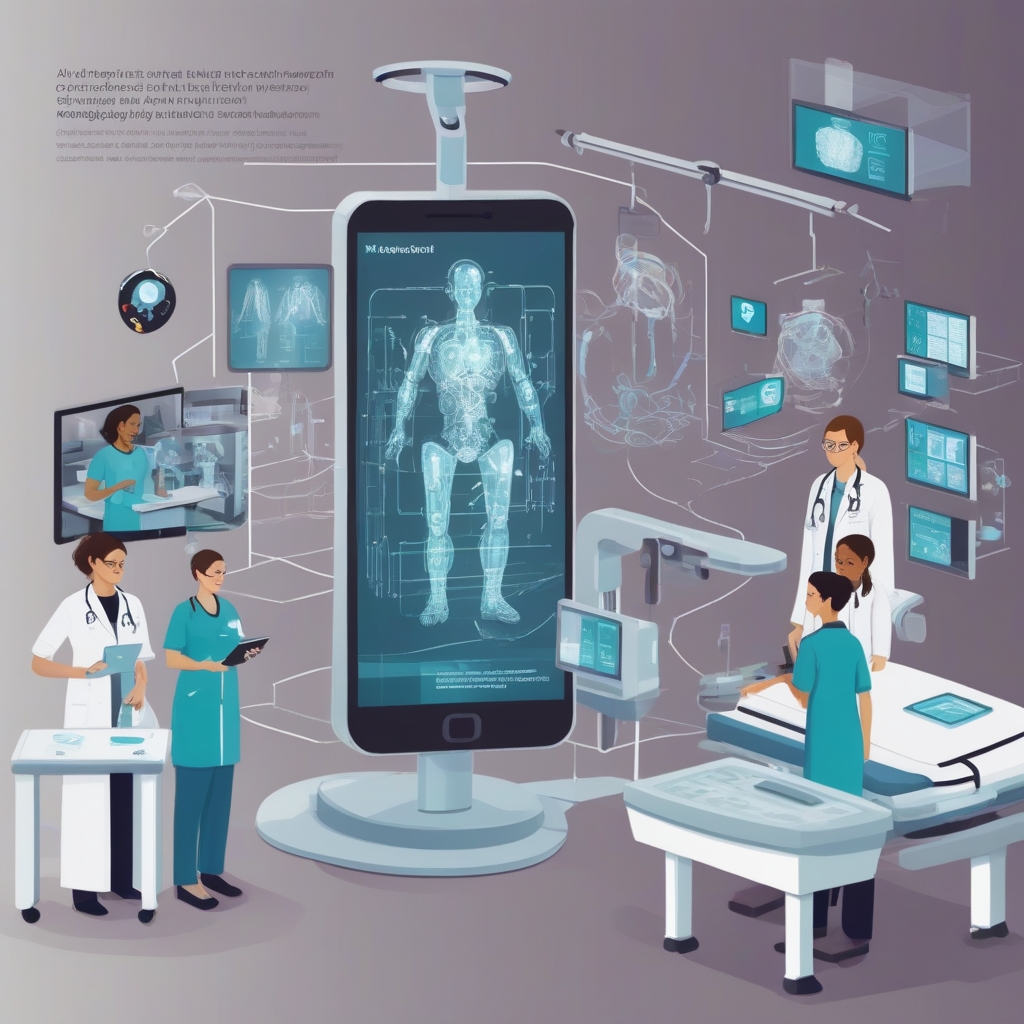The Dawn of Artificial Intelligence in Healthcare
The healthcare sector is experiencing a paradigm shift with the incorporation of **Artificial Intelligence (AI)** and **automation**. These cutting-edge technologies are revolutionizing traditional healthcare practices by enhancing operational efficiency, reducing human error, and improving patient outcomes. As hospitals and clinics transition toward tech-enhanced environments, the fusion of AI and automation is fostering a new era in health tech that holds immense promise.
The Role of AI in Diagnosing and Monitoring
At the heart of the revolution in healthcare is the use of AI to enhance diagnosing and monitoring processes. AI-powered systems can analyze vast amounts of data at unprecedented speeds, enabling more accurate and early detection of diseases. These systems support healthcare professionals in making informed decisions, thus reducing the risk of human error.
Automation Streamlining Healthcare Operations
The integration of automation within healthcare operations is streamlining workflows and reducing the burden on healthcare staff. From handling administrative tasks to managing supply chains, automation is leading to substantial improvements in efficiency and accuracy.
Robotic Assistance: Redefining Surgical Procedures
Robotics is another frontier where AI and automation converge in healthcare, particularly in surgical settings. Robotic systems, driven by AI, are transforming how surgeries are performed, offering unmatched precision and control.
Implementing AI & Automation in Healthcare: Challenges and Solutions
Despite the advantages, integrating AI and automation in healthcare presents several challenges that need to be addressed for successful implementation.
Data Privacy and Security Concerns
One of the significant challenges is ensuring the privacy and security of patient data. As AI systems require a substantial amount of data to function effectively, protecting this sensitive information becomes crucial.
Addressing Technological Resistance
Healthcare professionals may resist adopting new technologies due to a lack of familiarity or perceived threat to employment stability.
Proven Benefits and Future Prospects
The adoption of AI and automation in healthcare is yielding measurable benefits, including enhanced diagnostic accuracy, operational efficiency, and patient satisfaction. Looking forward, the landscape of healthcare is set to become even more innovative.
Increased Access to Healthcare
AI-powered telemedicine platforms are making healthcare more accessible to remote or underserved populations, ensuring that healthcare services reach those who need them the most.
The Evolution of Precision Medicine
Precision medicine harnesses AI’s analytical capabilities to develop customized treatments based on individual genetic and medical data. This approach promises to revolutionize how diseases are diagnosed and treated.
In conclusion, AI and automation are not merely enhancing existing healthcare systems; they are reshaping the entire landscape of patient care. As these technologies continue to evolve, their integration into health tech presents a future filled with possibilities for innovation, efficiency, and improved patient outcomes. By navigating the challenges and capitalizing on the opportunities, the healthcare sector can leverage AI and automation to truly revolutionize the way care is delivered.

Leave a Reply